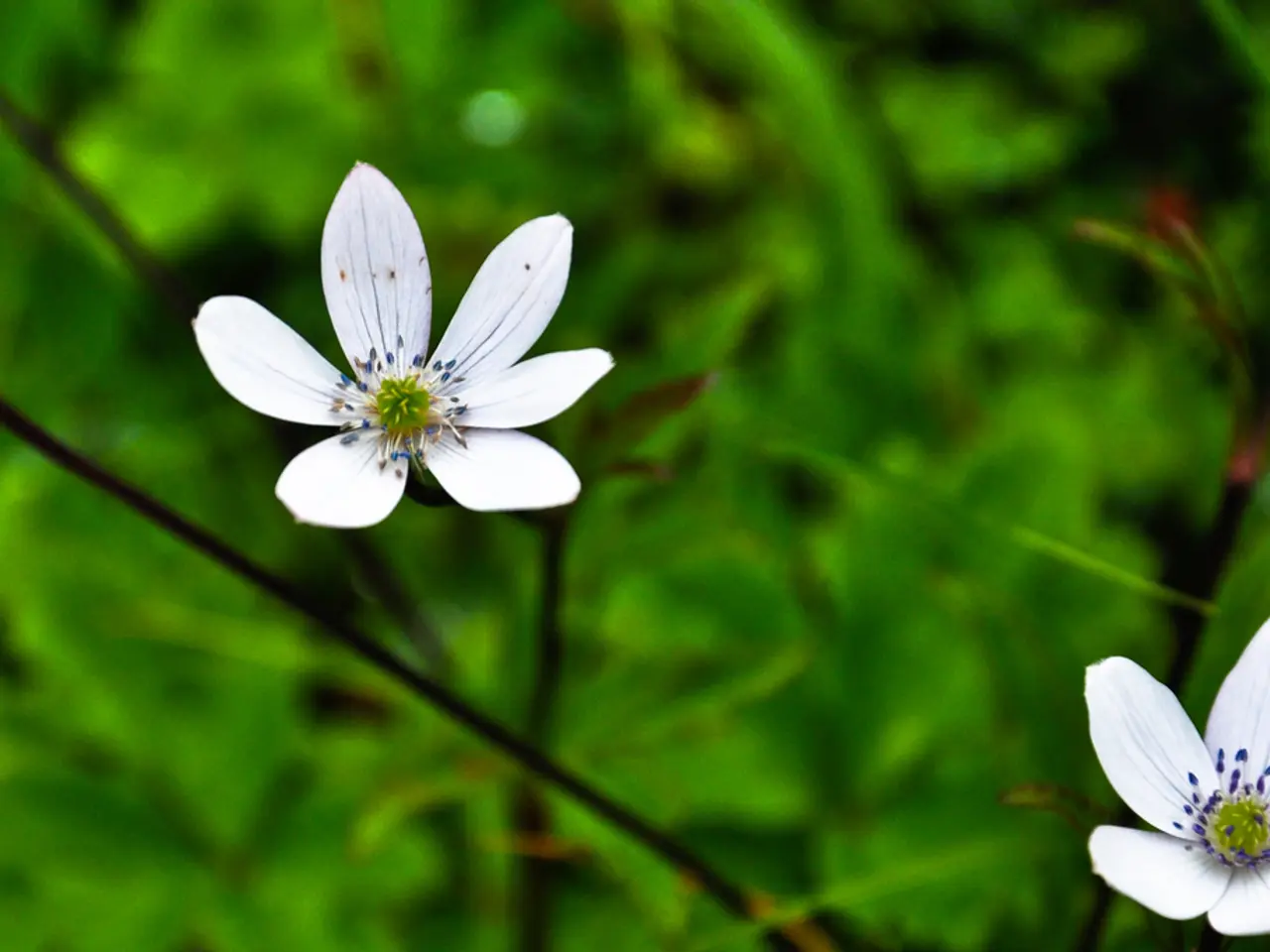Rapidly Propagating Perennials That Maintain Orderliness in Gardens
For those seeking fast-growing, well-mannered plants that can fill garden beds without becoming invasive, a selection of options has emerged as ideal choices for low-effort gardens. These plants offer rapid growth and coverage with controlled spreading habits, making them perfect for creating attractive, low-maintenance options that fill beds effectively without the risk of invasive behavior.
One such plant is the Geranium 'Rozanne', a perennial that is celebrated for its fast and graceful spreading. It features soft green foliage and violet-blue blooms, flowering from late spring until frost. This plant thrives in full sun to part shade, adapts well to various conditions including heat and humidity, and rarely suffers from pests. It spreads enough to soften edges and fill beds but is not aggressively invasive, making it ideal for front or middle borders with low upkeep.
Coreopsis, also known as Tickseed, is another bright, golden daisy-like flower that creates a spreading carpet through self-seeding and rhizomes. It tolerates drought and poor soils, requires minimal maintenance (deadheading and occasional cutting back), and is deer-resistant. Hardy in zones 4–9, coreopsis stays well-behaved while quickly filling sunny borders.
Catmint (Nepeta) forms mounded clumps with silvery-green foliage and lavender-blue flowers. It spreads moderately and is resistant to deer and rabbits. Prefers full sun and well-drained soil, and requires minimal pruning after its first bloom to encourage more flowers. Catmint is low-maintenance and makes an excellent pollinator-friendly groundcover or border plant.
Salvia, or Sage, has upright flower spikes that gently but reliably fill garden gaps. Loved by pollinators, salvia thrives in full sun with well-drained soil and benefits from deadheading. Some varieties reseed naturally but do not become invasive, offering a manageable growing habit for low-effort gardens.
Hardy Plumbago (Ceratostigma plumbaginoides) is a less common but excellent groundcover that thrives in sun or dry shade and tolerates clay soils and moderate foot traffic. It’s drought tolerant once established, pest-free, and well-behaved (not invasive). It grows 10-50 cm tall and wide, stabilizes soil, suppresses weeds, and requires very little maintenance, making it perfect under trees or shrubs where grass struggles.
These plants offer a variety of colours, textures, and heights, ensuring there's an option for every gardener. For example, Japanese Anemones rise in neat clumps, filling borders with late-season blooms and adding vertical softness without overtaking its neighbours. They thrive in shade and consistently moist soil.
In conclusion, these plants not only fill spaces effectively but also charm with their beauty and resilience. They are perfect for those who want to enjoy a vibrant, low-maintenance garden without the hassle of constant upkeep.
Organic gardening practices can complement these low-maintenance plants, fostering a thriving home-and-garden lifestyle. To attract pollinators, incorporate a selection of plants that bloom at different times, ensuring a continuous supply of nectar.
Placing decorative elements like stones, solar lights, or birdhouses around the garden can further enhance its visual appeal and create a more enchanting environment.
Garden landscaping with these plants not only meets practical needs but also serves aesthetic purposes, transforming the simple act of planting into a creative pursuit that complements your lifestyle.
These plants can be combined with other perennials to create diverse, harmonious arrangements in your garden beds, ensuring a thriving, pollinator-friendly landscape all year round.
Consider incorporating these options into your organic projects to develop a stunning, low-effort garden that nurtures both your land and your home.
Maintaining fragrant flowers like these throughout the seasons adds an extra layer of delight to your garden, creating a peaceful sanctuary where you can unwind and connect with nature.




